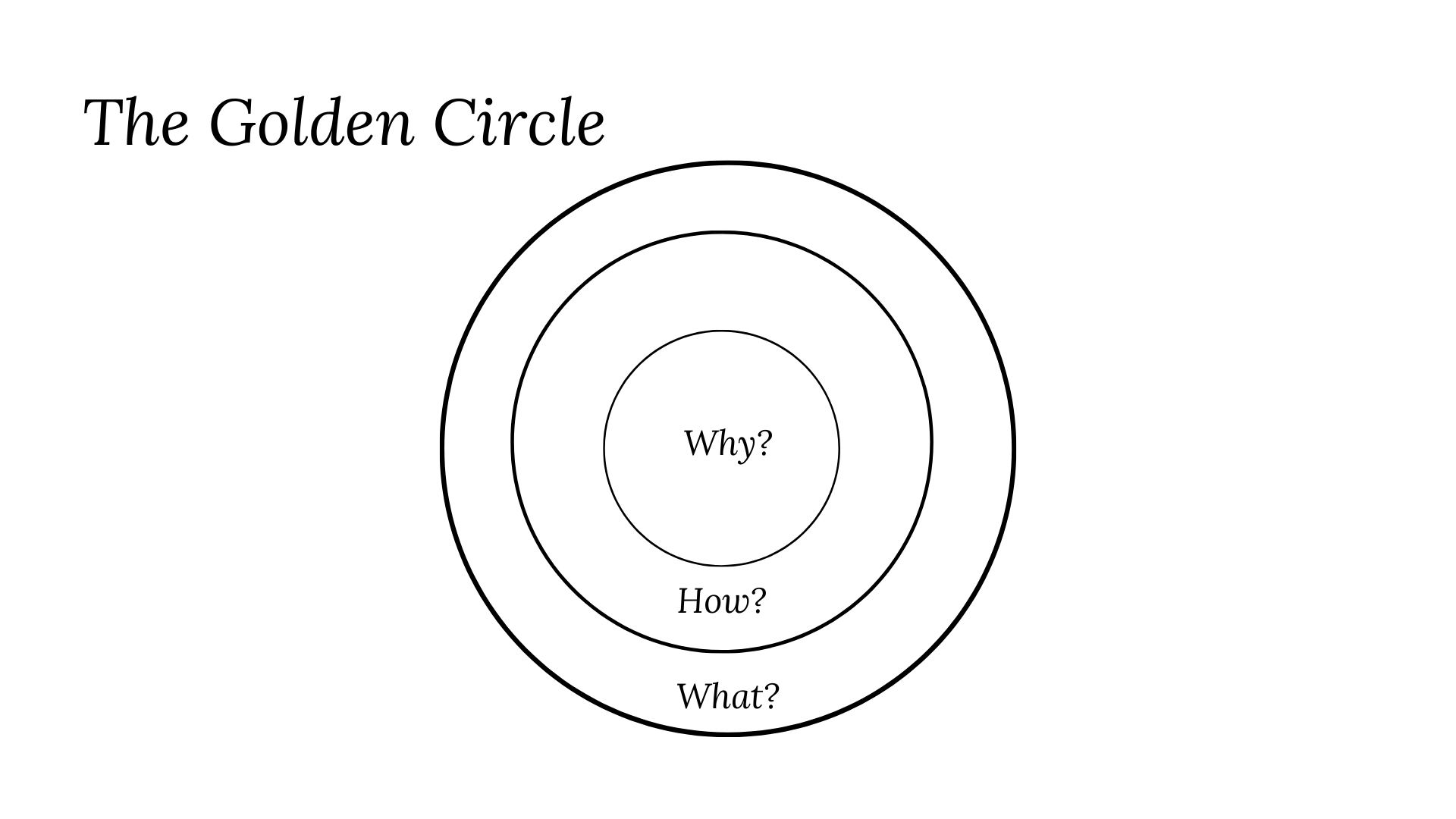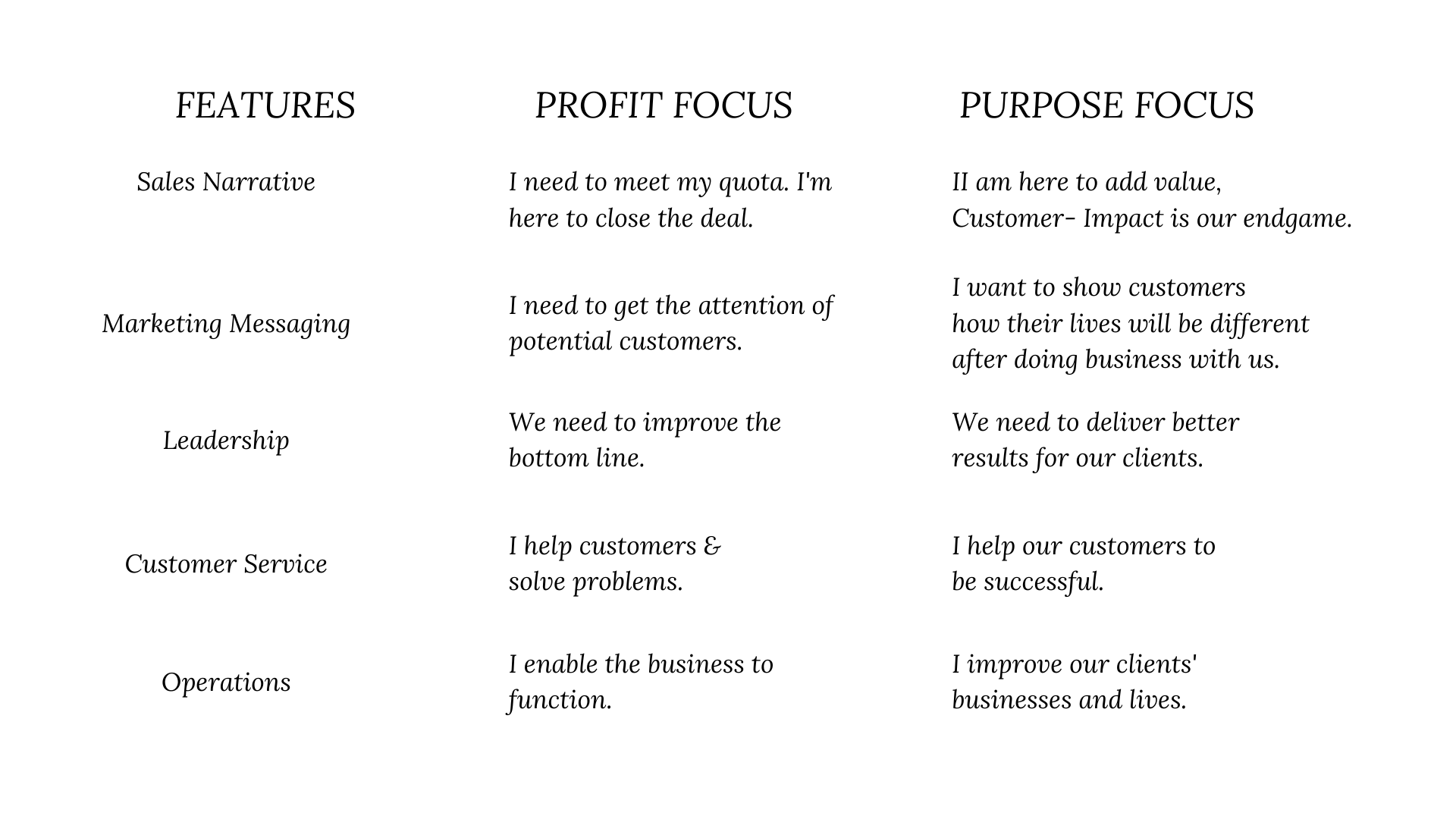When you think about what purpose a company or organisation has, it is customary to label profit as the purpose of the business. It is the reality of many companies and organisations operating today. Purpose driven organisations have a competitive advantage and are creating better results over those organisations that purely focus on financial profits. The purpose of an organisation should be unique to each organisation and not profit making alone.
Think about waking up each day with a job you’re not passionate about, but that earns you a decent salary. You could do so much with the resources you have but would you be satisfied? For how long would you be able to wake up excited and motivated? What you would be lacking is the purpose, the purpose behind doing the job, the purpose to go forth with gusto and the purpose to persevere. Organisations are a lot like the individuals that work for it. A purpose-driven organisation has a reason to be. Imagine being part of an organisation where you’re told, “We have to reach our profit target of X million Rupees.” You might get a pay rise on achieving the profit target, but would you be motivated? Now imagine an organisation where you’re told, “You’re part of this movement/you’re a changemaker.” Your perception about yourself would change as you would see yourself as an empowered and a motivated individual. You would start loving more what you do.
In the business world, many organisations define their purpose based on the marketplace or their perceived competitors. Due to this thirst for high numbers, many organisations fail to reach their potential and sustained growth. If profit or the marketplace or your perceived competitors are your basis for defining your purpose, then you may end up forming an organisation that duplicates what other organisation does and due to the element of risk involved, you might not be able to gain a firm footing in the market. Profit and other financial measures are not a good guide in developing a product or strategy, nor do they inspire employees or enhance customer loyalty.
So, what is this ‘Purpose’? In order to gain a more coherent image of what purpose is, let’s take a look at the diagram below which Simon Sinek, a British-American author, calls ‘The Golden Circle.’

What? – this is what the organisation is. Whether it is a petroleum company or a marketing agency.
How? – this is how the organisation carries out its operations. It entails all the wheels that turn to operate that organisation.
Why? – this is the purpose of the organisation, which many organisations perceive to be profit.
Now, before I dive in further detail, this Golden Circle applies to people and organisations. Simon Sinek in his TED Talk said that the most influential leaders and the most successful organisations, do not start with ‘What?’ Instead, they start from the core. ‘Why they want to do something?’ or ‘Why does an organisation exist?’ and then proceed to ‘How?’ and then ‘What?’
According to Aaron Hurst, founder of Imperative, 42% of non-purpose led companies have shown a drop in revenue while 85% of purpose led companies have shown positive growth. Why is this? In an article with the Harvard Business Review, Simon said, “Profit isn’t a purpose. It’s a result. To have purpose means the things we do are of real value to others.” Here’s the thing, companies that operate with purposes of making others’ lives easier tend to make profit as they satisfy a need or want such as convenience, unlike companies that only strive to make profit.
The following table compares the various aspects of profit focused and purpose focused companies.

Furthermore, purpose-driven companies have a higher level of employee satisfaction and motivation with a purpose that differentiates them from the competition.
Businesses that value long-term positive impacts over short-terms profits have been able to generate profits and withstand shifts in the economy as they are based on a purpose, that differentiates them from others, rather than profits. Such organisations are able to do so due to the positive implications of purpose-driven organisations on their employees and the consumers. As this philosophy of purpose over profit permeates the business environment, if it is adopted by organisations, the potential to improve the world is limitless.


